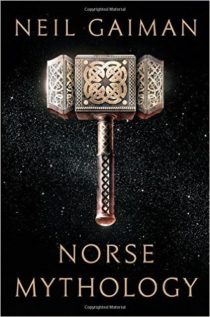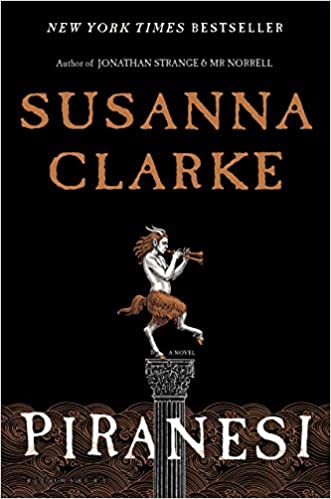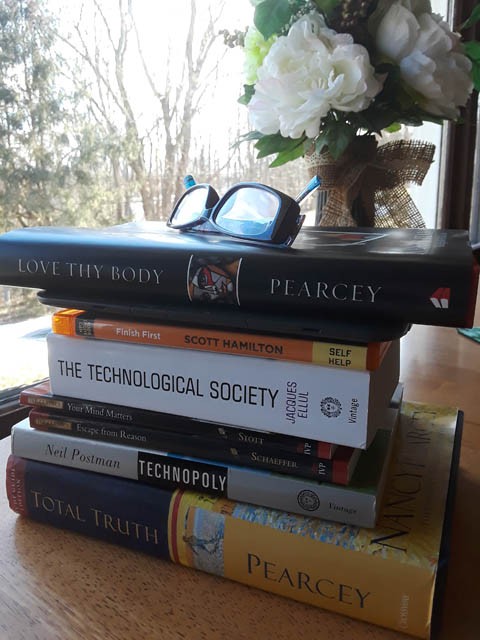Norse Mythology
 I was curious about Neil Gaiman’s Norse Mythology partly because of a recent reminder that C.S. Lewis was fascinated with “Northernness.” A shared interest in Norse mythology was one of the common bonds between Lewis and Tolkien, and the words “Balder the beautiful is dead!” provided an early experience of what Lewis calls joy.
I was curious about Neil Gaiman’s Norse Mythology partly because of a recent reminder that C.S. Lewis was fascinated with “Northernness.” A shared interest in Norse mythology was one of the common bonds between Lewis and Tolkien, and the words “Balder the beautiful is dead!” provided an early experience of what Lewis calls joy.
The other reason for my curiosity was, admittedly, my faithful dedication to all the Marvel Avengers movies, in which the Norse god Thor joins with a collection of other superheroes to “make the world safe.”
Thor in these stories doesn’t come across as quite so noble. He’s pretty capricious, in fact, and mostly driven by his personal appetites. Even when he is supposed to be impersonating the beautiful Freya in order to get his hammer back, and he must disguise himself as a bride at his wedding feast, he can’t contain his great appetite and eats plate after plate full of dainties washed down by oceans of mead. When he makes a foolish proposal to go fishing with an expert giant fisherman, his friend warns him that he’d better be sure he knows what he’s getting into. Though he insists that he does, the narrator explains, “But he didn’t. He was just doing whatever he felt like doing. That was what Thor did best.”
The tales are filled with contradictions. Characters die, but sometimes they can come back. Every day in Valhalla, the land of the dead, all those killed in battle come back to life at the sound of the dinner bell and feast companionably. Sometimes, the gods can change shape, but sometimes there are seemingly arbitrary limitations. And though bloodshed is relished in general, when it comes to the huge Fenris Wolf or the Midgard serpent, Odin tries to contain rather than destroy some of the greatest enemies of Asgard. Reading the tales is an experience — an immersion in a fictional world where factual consistency and credibility are simply not valued. At all. These are fantastic tales that entertain their readers and exalt strength above almost all else. In keeping with this, two of the stories underscore the fear of aging.
Loki is the most enigmatic character of all. One is tempted to say he is bad to the core. Yet he is somehow a likable villain, as he is in the Avengers movies. Though he is completely disloyal and dishonest, he is extremely clever, and somehow this mental agility comes off as a kind of strength that rivals even Thor’s brawn. The Aesir don’t like him or trust him, yet they keep him around; I guess the theory is to keep your friends close, and your enemies closer. There is a grudging admiration for him that seems to radiate from the stories, and it keeps us hoping that he will turn out to be a good guy after all.
I was struck by how purely entertaining the stories were. Aren’t we often told that myths were devised to explain the natural world? These ones don’t explain anything, really, and they are set in a fantastic world that operates with indifference to the normal constraints of nature. The narrative’s dry wit seems to accentuate this. “Kvasir, wisest of the gods, walked in through the first door,” we’re told in one tale. “Once he had been dead, and mead had been brewed from his blood, but now he was alive once more.” (There. That explains it, doesn’t it?) The overall result is that no matter how much brutality or treachery the stories may involve, there seems to be no real, lasting loss. Even the Ragnarok, the end of all things, ends up being a transition into a different stage of the world.
I enjoyed this collection. Though there are many all too human flaws that characterize the gods of Asgard, it represented a truly otherworldly fictional voyage — fascinating, sometimes disturbing, and often comical.


